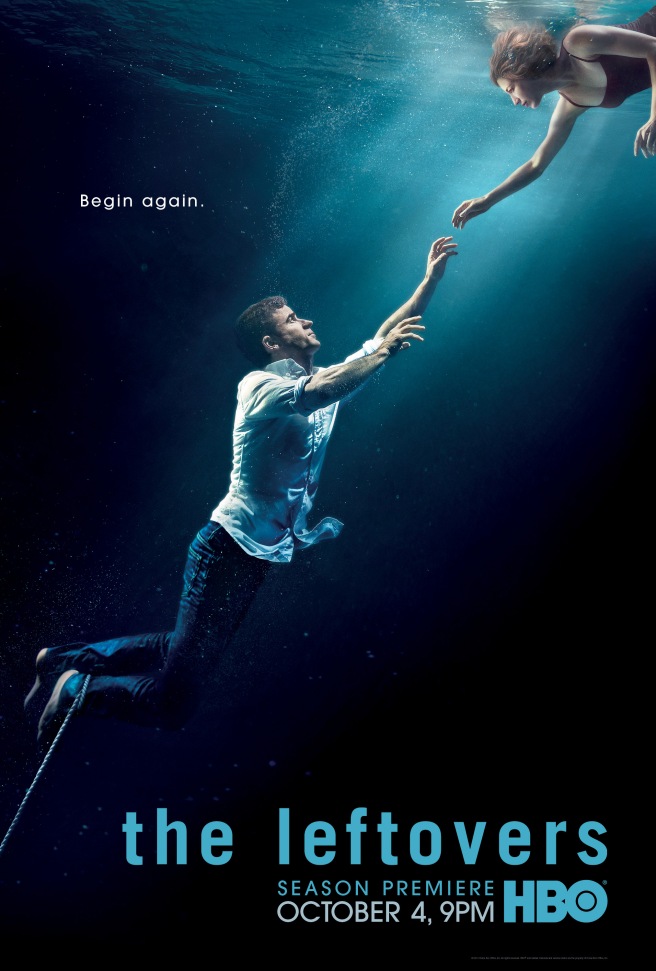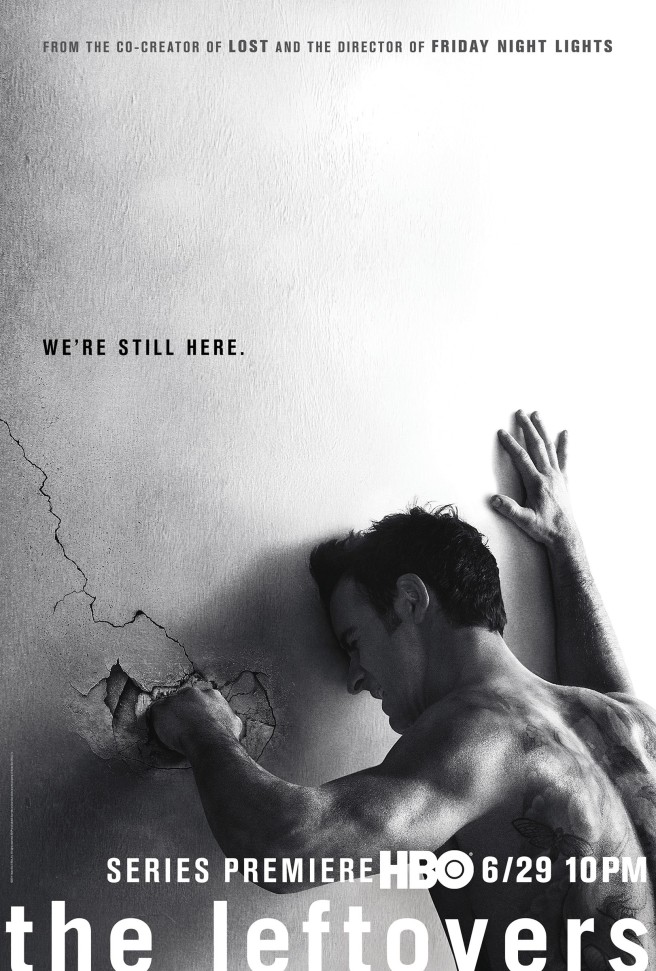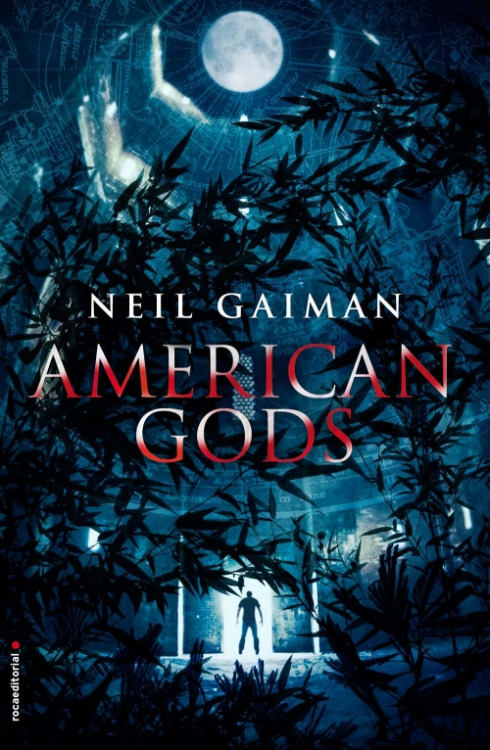
The leftovers, Season 2, created by Damon Lindelof, based on a novel by Tom Perrotta (HBO, 2015).
Score: the stakes are up.
***SPOILERS FOR SEASON 1***


The leftovers, Season 2, created by Damon Lindelof, based on a novel by Tom Perrotta (HBO, 2015).
Score: the stakes are up.
***SPOILERS FOR SEASON 1***

En español a continuación.
The leftovers, Season 1, created by Damon Lindelof, based on a novel by Tom Perrotta (HBO, 2014).
Score: insightful.
On October the 11th, 2011, 2% of the world’s population vanishes. They just poof into thin air. The leftovers shows some insight into the lives of the small community of Mapleton, just outside New York City, three years after the Sudden Departure. Kevin Garvey (Justin Theroux) is the Chief Officer of the local police, keen on maintaining peace and trying to help out his teenage daughter Jill (Margaret Qualley) after his father (Scott Glenn) was commited to a mental institution, his son Tom (Chris Zylka) ran away and joined a cult and his wife and he became estranged. Mapleton, just like the rest of the country, is being slowly taken over by the Guilty Remnant, a cult with a vow of silence and chainsmoking, led by Patti Levin (Ann Dowd) and intent on making everyone remember (and obsess over, if possible) the Sudden Departure. Other important characters are Matt Jamison (Christopher Eccleston), an Episcopalian priest hell-bent on proving that the Sudden Departure was not the Rapture by digging around the morally reproachable things that the Departed did; his sister Nora Durst (Carrie Coon), whose husband and two children were Departed and now works for the government, and Holy Wayne (Paterson Joseph), a cult leader who claims can take grief away by hugging people.
Even though the setting is similar to shows like Flashforward, The leftovers takes on a very different course: the goal is not to find out why all those people disappeared. It is not about solving the mystery, not even about taking a rational approach to it. Something painful happened with no explanation, and the different characters are seen coping with grief, reflecting on their own spirituality, looking up to an absent god for answers or preying on those who can’t find relief. The tone is successfully set within the first two episodes, through extensive use of religious imagery, from the Christian fresco-inspired opening credits to the repeated apparition of a deer, and by quickly establishing what the conflicts are.
The cinematography is more functional than elegant, the score abuses (not always appropriate) preexistent songs, and the dialogue can be silly at times, but the show is, in general, excellently written, especially on episodes that flesh out a particular character, such as “Two boats and a helicopter” and “Guest”. Probably because it deals with sensitive and powerful topics such as faith, grief and loss, from multiple perspectives. It works very well as an allegory for loss and trauma: the Sudden Departure is what you get when you add up sudden absence, an inability to rationalize what happened and a lack of closure. It works for natural deaths of loved ones, massive accidents, terrorist attacks, even broken homes. This allows the show to explore a different aspect of the topic with each character. Events and causality are not really overexplained, so it can be a demanding show; Kevin’s arc in particular requires piecing together and some patience.
All in all, probably not what you’re looking for if you want mystery and adventure, even though the plot trigger promises both. Once that it is out of the way, I recommend this show for its insight and the psychological depth of its characters.
Under the spoiler tag, I would like to analyse the characters in more depth, since there are some very juicy details.
***SPOILERS***

American Gods, by Neil Gaiman (2001).
Score: I really tried to like it but didn’t.
Last year I started Neverwhere and left it half in as well. I picked up American Gods honestly wanting to like it, but to no avail. I even feel bad because I think Neil Gaiman is such a nice guy and follow him here on Tumblr and everything but he just doesn’t catch my attention as a fantasy writer.
American Gods tells the story of Shadow, a guy that has behaved like a pinball all his life and thus ended in jail for a robbery gone wrong. He’s left out of prison a few days early due to the death of his wife in a car crash. While flying to a hometown where no one’s waiting for him he meets Mr. Wednesday, who hires Shadow as a bodyguard. It turns out Wednesday is the incarnation of an old god and has some other god friends as well, who want to fight the new gods for their believers, since when people don’t worship them they lose their powers (it’s like Small gods, only less funny). The new gods being the internet, credit cards and such.
I read about a hundred pages of it before I decided I just didn’t find it interesting enough. I found Shadow a bit annoying as a main character because he’s just being pushed around (even though apparently there’s a reason for it that’s revealed later), and Wednesday wasn’t really as charming and mysterious as he fancied himself. The style is not dry nor bad but since the events weren’t entertaining me the other reason to keep reading was the narrating style (I put up with a lot of bullshit from writers like Stephenson and R.R. Martin for the sole reason that the fuckers do know how to tell me a story). So narration didn’t keep me on the boat either.
I decided to look up how the plot developed and it didn’t appeal to me either. ***Obviously, SPOILERS*** All this nonsense about Shadow being Odin’s son and his going to jail as part of a setup from him and Loki to stir up a war and cash on it. It didn’t feel as an original or interesting development to me. The original setting didn’t lend itself to much more but if the development looked liked it was going to be different i would have carried on. ***END SPOILERS*** Another thing that was supposedly unique about the book and its style was the ongoing theme about the United States, Americana as a genre and how American identity is such a vague and fleeting thing because there are so many people from so many different places and different customs, blah, blah, blah. I know that Gaiman is British but, god, I hate it when Americans behave like they’re the only multicultural country in the history of everything. The case of the US is not as unique as they want you to believe.
So to wrap it up, I didn’t like it but maybe you will, so give it a chance. I guess I’m a Greek mythology person after all.